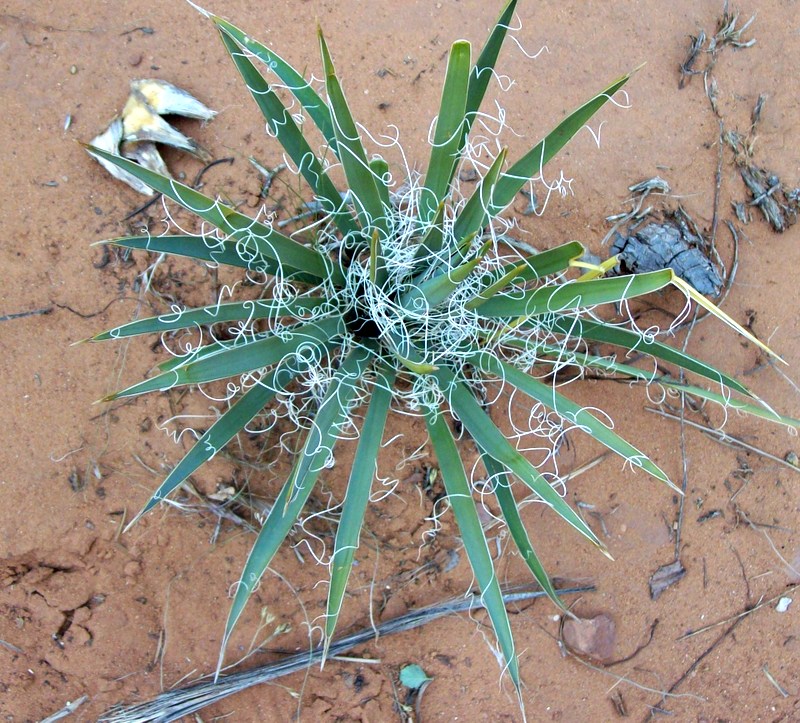
~ Mark Sisson
Please Not This!
You’ve embraced the paleo diet and lifestyle, noticed a huge reduction in your autoimmune symptoms, and overall you’ve been feeling great and grateful. Suddenly, out of nowhere, your autoimmune symptoms flare and remind you of where you started. What’s happening, and how can you quickly return to feeling better?
How Long Have You Been Paleo?
I always ask this question first, because autoimmunity doesn’t turn off and on like a light switch. While the paleo diet and lifestyle is a powerful healing tool, it’s healing at a cellular level and that takes time. It’s actually normal to continue to flare occasionally. You should see improvements – your flares should diminish in both number and intensity, but if you’ve only been paleo a month or two, continuing to flare doesn’t mean anything’s “wrong.” Take good care of yourself to help it pass quickly (lots of sleep, bone broth, sunshine and nutrient-dense foods). Stay committed to your healing lifestyle, and keep a symptom diary to mark your improvements. It will calm your fears during these moments.
Are You Doing Regular Paleo or the Autoimmune Protocol (AIP)?
Some people are lucky and see huge improvements in their autoimmune symptoms with a regular paleo diet. Others need to take it further. The AIP is an elimination diet that helps you identify additional food intolerances. It’s also a program that reminds you to focus on the importance of nutrient-dense food choices and a healing lifestyle. I started with a version of regular paleo myself (The GAPS Diet), and within 5 months I went from being disabled to being functional, from being in excruciating pain to mild pain, from having daily flares to flaring just a few times a month. It was a huge improvement, but I plateaued in my healing. That’s when I was ready to try the AIP. Within a few more months, my pain dropped to a whisper and years passed between flares. If you aren’t familiar with the AIP, I have a book that makes it as easy as possible.
Are You Focused on Nutrient Density?
Healing diets aren’t just about the inflammatory foods you remove. Our bodies need deep nutrition to thrive. If you’re eating a small number of foods in rotation, that’s not a nutrient-dense diet. Variety matters, even on the AIP. Use this grocery list as your guide and see how many different foods you can eat each week. Follow the AIP Food Pyramid to see which ones to prioritize. And while we all can enjoy the occasional sweet treat or convenience food, the majority of our meals should be real food that doesn’t come from a box. That’s a truly healing diet.
What Is Your Lifestyle Like?
Many of us find it easier to make good food choices, than to address an unhealthy lifestyle. We convince ourselves we have no choice. That life is too busy to get enough sleep. That we can’t cut down on our commitments; people depend on us. That we can’t ask for help; it’s our responsibility to take care of others, not the other way around. That we need our jobs, even if the level of stress is out of control. That we’re stuck in a toxic relationship, whether with a family member, friend, or spouse, with no way out.
If you feel trapped in your choices, ask yourself this powerful question: “Is that really true?” Look at your life and see where you have options. If you really believe you have none, it’s time to consult someone more objective – a good friend or even a therapist, to show you alternatives. You can begin with baby steps. Drop one responsibility from your life that brings you no joy. Say no the next time someone asks you to volunteer. Delegate some of your chores to other people in your household. Turn off your computer (or TV) and go to bed an hour earlier every night. Start looking at job listings, just to see what options exist. Set yourself a 30-day stress management challenge, where every single day you do something for 15 minutes that relaxes you. It can be anything from a bath, to meditation, to yoga, to an adult coloring book, to reading a novel. For the big changes, start visualizing a different life. Picture it first, and then break it down into action steps – what is the first thing you need to do toward creating that new life? You are more powerful than your realize.
Do You Need Help Beyond Diet and Lifestyle?
Sometimes we see the world in black and white, believing that the only paleo success story is someone who has achieved a medication-free remission. The reality is that there’s a whole spectrum of autoimmune healing, and that will look different for each of us. I get emails from people who are taking the strongest medication available and still experiencing loss of abilities and severe autoimmune flares. That’s what motivates them to try the paleo diet. While most people are able to reduce their medication after 6-12 months of living the paleo lifestyle, not everyone can eliminate it completely. And that’s OK. Some people have more aggressive autoimmune diseases than others, and the combination of medication plus diet is what improves their quality of life. Whatever keeps you living your healthiest life is cause for celebration. Medication is not failure.
Do You Have An Underlying Health Issue Not Yet Diagnosed?
Autoimmune healing is a marathon, not a sprint, and there are often many layers to healing. If you are doing everything right and making no progress, it’s time to do some detective work on your own body, and that’s where functional medicine comes in. Sometimes an infection or parasite or hormone imbalance can keep your immune system overstimulated, in spite of your best intentions. Healing underlying issues might be the key to breaking through your personal road block. Check out this list of directories for a practitioner near you. Many people also consult worldwide via telehealth.
Have You Started Any New Supplements or Medications?
If you have an underlying health issue, that will normally be treated with a new supplement or medication, and one of three things will happen: (1) It will help you feel better. (2) It will have a neutral effect. (3) Or it will make you feel worse. Sometimes we don’t consider option #3. We think if something is prescribed to help us, then that’s what it will do. Autoimmunity is more complicated than that, and a treatment that puts one person into remission, might cause another person to flare. I don’t say this to scare you away from treatment, but it might take some trial and error to find the intervention that works for you. Here’s my advice:
- Only try one new supplement or medication at a time. That way, you can monitor your body for improvements vs. inflammation, and see the results clearly and quickly.
- Read the labels on your bottles carefully. Many supplements contain non-paleo ingredients such as dairy, soy, grains, etc. Choose supplements that are allergen-free with a minimal number of ingredients, and if there’s one you don’t recognize, call the manufacturer for details. When it comes to prescriptions, you can ask your pharmacist these questions.
- Be careful of bargain hunting. In 2015, the New York Attorney General’s Office did an investigation into the generic store brands sold by Wal-Mart, GNC, Target and Walgreens, and found that 4 out of 5 supplements didn’t contain the herbs advertised. Instead, they contained cheaper ingredients not advertised on the label. Buy a brand that you trust.
Are You Suffering From Overtreatment?
This is the flipside of functional medicine consultation. Sometimes after a battery of tests, you discover there are many underlying health issues to address. These are best tackled one at a time. If you try to do too much too fast, that can be overwhelming to the body and cause a flare as well. Work with your practitioner to help you prioritize. The good news is that healing can have a domino effect. Working on the most important problem sometimes has the side effect of healing the rest.
Whatever the Cause, Give Yourself Time
Autoimmunity is tricky. Once our immune system ramps up into overdrive, it takes time for it to calm back down. While we hope a flare will pass quickly, sometimes it takes a couple of months before we feel “back to normal.” This doesn’t mean we need to troubleshoot. Really, we just need to give ourselves time. This is an opportunity to focus on something else. It’s easy to get obsessed with autoimmune healing, where every free minute is spent researching the science of our disease or the latest intervention. Do you have hobbies and interests outside of autoimmune healing? If not, it’s time to get some. Freeing ourselves from worry can be an important step toward feeling better.
Seek Progress Over Perfection
Sometimes we set impossible goals for ourselves. Every setback feels like a personal failure. It’s important to remember that there is a difference between reversing autoimmune disease and a cure. Reversing autoimmune disease is about slowing disease progression, reducing symptoms, reclaiming abilities, and improving quality of life. These are huge accomplishments! But it’s not a 100% cure, which means that setbacks will sometimes happen. Remember this: you are not a failure if your health isn’t “perfect“. You’re simply human. Celebrate your successes, have compassion for yourself during setbacks, and strive to love yourself through it all.
You May Also Be Interested In
A version of this post originally appeared in my column in Paleo Magazine.

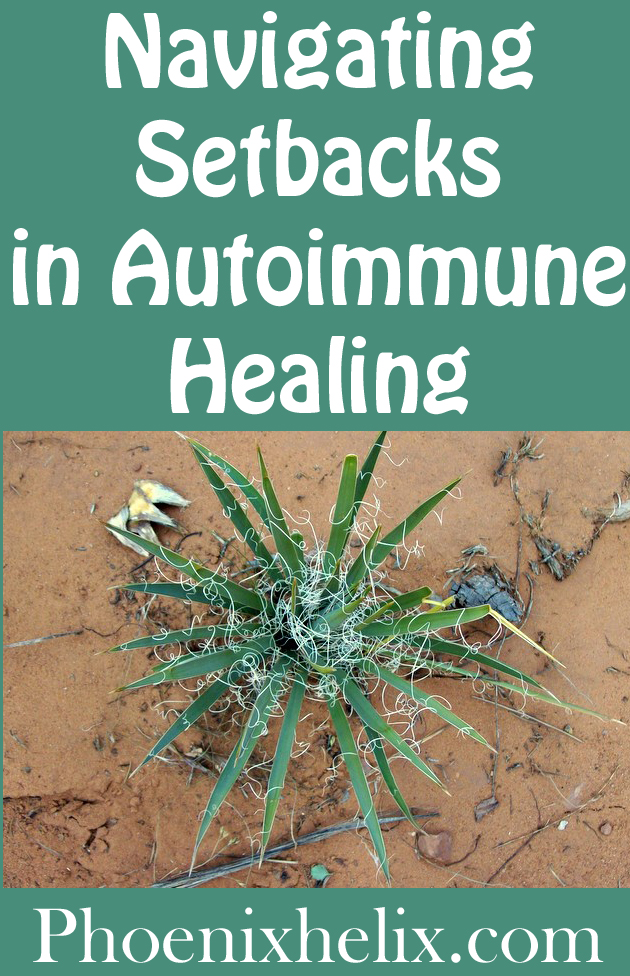
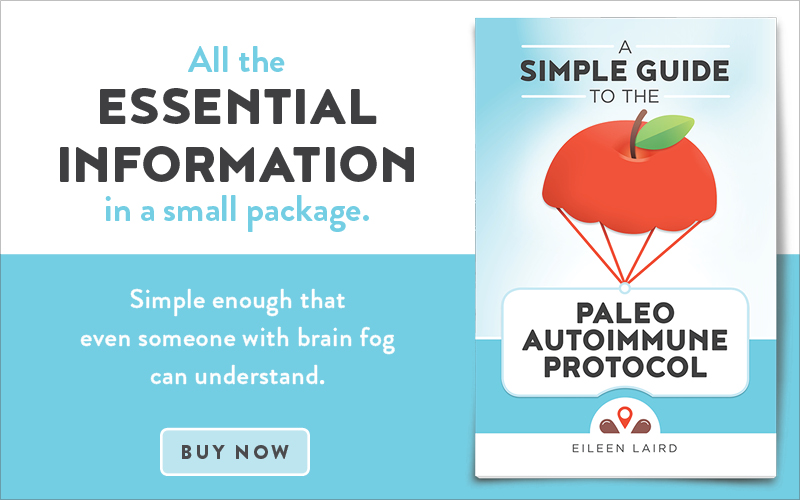
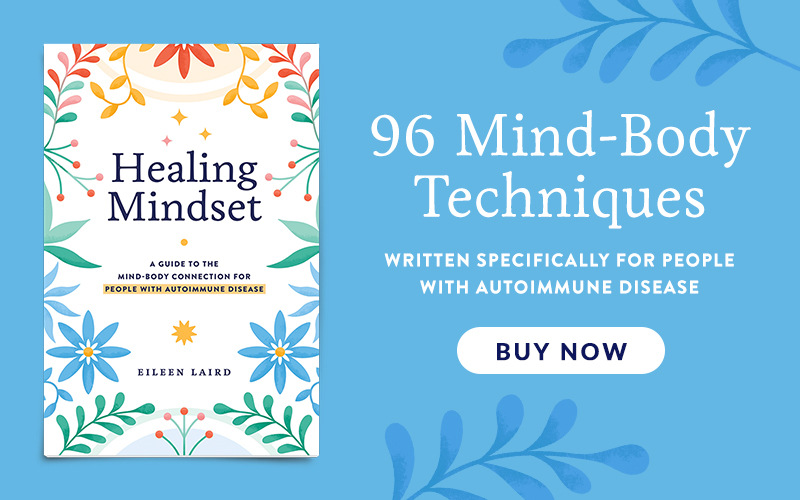



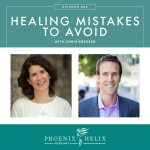

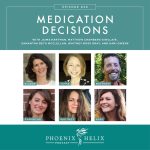

Have RA for 23 years. Eating AIP for 4 years, but have never felt better no matter how restrictive I eat. Have had many, many tests, tried many supplements/herbs, etc. Tried getting off meds, but on the same ones as before. Even worked with a functional medicine doc. Regardless, I won’t give up. I thoroughly enjoy your posts & podcasts. You are my #1 “go to” for information. Thanks for everything you do!!
Denise, I love your positive attitude. It can be so frustrating to be in a healing plateau like that, no matter what you try. My best advice is to focus on mindset at this point, enjoying your life as much as possible, and taking some of that pressure off to find the answer that seems so elusive. One podcast that might resonate with you is the one I did with Byron Katie. I was struggling with the fact that I hadn’t achieved remission in spite of “perfect effort”, and she helped me make peace with that. Wishing you joy, strength, resilience, and wellness. Sending lots of love your way!
Dear Eileen:. Thank you for your very personal insights that are always so helpful. I have Hashimotos & have been AIP almost a year now. Five months after starting tested antibodies & they were dropping! One month later my husband almost died in plane crash, spent four weeks in hospital out of state. I would cook most of my food to bring w/me, but still had to find breakfasts I could eat, etc. HARD! Not to mention stress. Tested recently & my antibodies are higher than when I started last year, w/symptoms flaring badly, mainly my gut. I’m losing heart & about to throw in the towel. Help, I’m desperate! Thank you!, Sue
Susan, I’m so sorry to hear about this scare for both you and your husband. I hope he’s doing better now? It sounds like you’ve been taking the best care you could, given the situation. My advice is to give yourself some grace. We know that stress is a huge inflammation trigger, so it’s not at all surprising your antibodies have gone up and your symptoms are flaring. However, I firmly believe they would be even higher had you thrown in the towel and done poor nutrition and no self-care. So, give yourself the credit you deserve for loving yourself through this difficult time. As your husband’s health improves and your stress lessens, your body will have the chance to heal again. In the meantime, listen to this podcast on Stress Management. It has some great tips for taking care of ourselves through difficult times. Gentle hugs coming your way.
Thank you Eileen for this article. It is very timely for me.
I’m right now on Prednisone after a major flare that occurred about a month and a half ago. Since starting the med, things have calmed down tremendously (but that’s what it’s supposed to do)! Anyway, I’m just about finished it and will see if it actually has done anything to push the flare back. I think mine is due to a co-infection I may have picked up from my grandchildren while visiting there – seems quite coincidental that it happened right afterward. The RA specialist put me on a drug she thought might help, but it takes 6-8 weeks to kick in, then this reared its ugly head and caused so much pain it was intolerable.
Hopefully, this will be a solution for now.
AIP is the only way I can keep my head above water and unfortunately when I try to reintro, it hasn’t been very successful yet! I’m sure at some point it will be, I’ll just have to be a bit more patient.
Again, thank you Eileen, you are a true blessing to our community.
Hi Louise. I’m so glad you’re responding well to the prednisone. Hopefully the other medication will have kicked in by now, allowing you to taper the prednisone easily. Flares are so scary and painful. As for reintroducing , you may just need more time for your health to stabilize (and infections to clear) before reintroductions start to become successful. It will happen! Sending a gentle hug your way.
My husband eats very “clean” so when he accidentally gets a nightshade (paprika, red pepper flakes) the reaction is immediate and takes several days to recover. He also has a compromised endocrine system (damaged pituitary). He recently ate something that triggered the inflammation, but the new twist was uncontrollable high blood pressure which required two emergency room visits and adjustments to medications. Is there something that he can do/take to quickly counteract a reaction? Kind of like someone who is extremely allergic to bee stings carries an epipen?
Paula, I wish there was! I would love to have an autoimmune version of an epi-pen. Unfortunately, I don’t know of any. When I have a flare, I take these steps to support the healing process, but it’s not instant: How To Survive An Autoimmune Flare.
Hi Eileen:
What a wonderful site you’ve created. Thank you for your patience and willingness to answer questions and help people. I have an autoimmune dilemma for you. I have Hashimoto and and because of that I also have gallstones and PCOS. So i would love to go on AIP diet but as any gastroenterologist would tell you red meats and animal fats are big no no for gallstones patients. We simply can’t digest them. The main source of protein for gallstones patients are grains like brown rice, quinoa, amaranth, buckwheat which are big no no on AIP diet. In fact digestion wise I feel good when eat some quinoa porridge with some cooked vegetables on a side. However all my Hashimoto symptoms are still here. In the meantime when I’ve tried AIP and felt very sick: bloated, nausea, gas, diarrhea from raw vegetables. I can imagine you’ve heard a lot from people with Hashimoto, did anybody of them complain about AIP making their gallstones condition worse? Thank you very much Janara
Hi Janara. I’m not an expert on this issue, but here’s an excellent article for people without a gallbladder who would like to try paleo: http://balancedbites.com/faqs-how-can-i-eat-paleo-without-a-gallbladder/
Wonderful post Eileen! Thanks for reminding us that healing takes time and certainly isn’t linear.
It makes us feel less like a failure when we realize this. It’s a journey for us all!
Hi Eilen, I always love your posts. Thanks for your insights!
Lately Ive been incorporating more types of fermented sources besides krauts n coco kefir, and found about fermented yucca root being fermented by a colony of yeasts starter made of rice and herbs. Its usually fermented for 2 days after steaming the root. I wonder whether or not its AIP compliant. I have sle, sjorgen syndromes, candidiasis and sibo. Thanks a lot!
Since the yeast starter is made from rice, that wouldn’t be AIP. How are you tolerating it? That’s the real question. If you feel better when you eat it, it might be fine for you. If you’ve noticed a setback, that might be the source.
I feel the issue of eating out is huge when it comes to setbacks. As someone with Celiac disease, I have decided that the risk of gluten contamination from eating in restaurants is too great, and I have stopped completely (except 100% GF restaurants, which are almost impossible to come by). Even though I have been able to reintroduce many categories of foods to my diet, I know a single instance of accidental gluten consumption can set me back weeks or months.
I have long thought that people using Paleo or AIP to manage their AI conditions should seriously consider their restaurant eating habits. Even if you are extremely explicit with waiters, cooks, etc., since gluten and other risky foods are so ubiquitous at restaurants, salad bars, etc., I think the likelihood of accidental ingestion is high. Just think about how you operate in your own kitchen, then think about the hands, pots, pans, utensils, plates, etc., in a restaurant kitchen. Even if the risk of a mistake is just 2% (and in my experience, it has been higher), that means if you eat in restaurants 50 time a year (less than once a week), you could suffer a health setback at least once.
As a Celiac, I am extremely sensitive to AI flares due to food as opposed to other lifestyle issues, and other people might be able to tolerate a higher level of risk in this area, but it is something to consider.
Great point, Kelly. I avoid restaurants myself, and agree they shouldn’t be a common habit for people reversing autoimmunity.
Hi Eileen, I’m now 6 months into AIP and start feeling better, I’m down to 1 pain killer a week. I’ve tried some green beans and peas, an egg, some coffee and wine but not a lot, as I want to take it slow. I sleep well and feel it’s healing so does the swimming. Thank you for your positive posts and encouragement which made feel not alone in this struggle.
Congratulations, Connie! I’m glad you’re doing so well.
Great article! The problem with supplements is huge! My own Naturopathic Dr gave me supplements two different times with ingredients that I was highly intolerant to. It just blows my mind. Did I get a refund? No. Guess what? Time for a new Naturopathic Dr. Our own Dr’s can give us setbacks.
You are so right, Laurie. It’s so important that we double-check rather than just follow prescriptions with blind trust.
This one really hits home. Thanks for another terrific piece.
I especially appreciated the comments about supplements and medications. Hopefully, everyone gets to the point where I am now. Usually I feel good, enough so that when I start a new medication or supplement, I can watch my reaction to it for signs that it’s not working for me. I never used to do this before I got sick. Now it’s so, so important. Without taking the extra time and care to guard my healing, I would quickly find myself back in the crazy-making confusion from which I came.
Thanks for the insight!
Thanks so much sharing your experience, Meghan. May you continue to feel better and better!